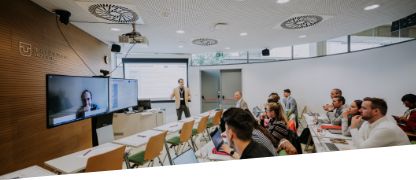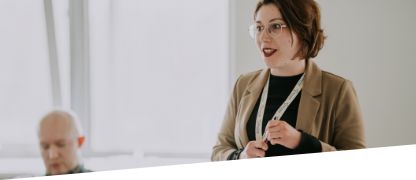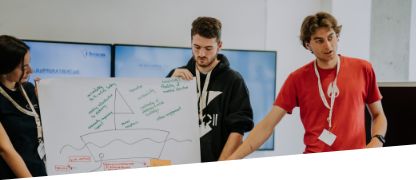The University of Münster and the University of Montenegro will join Ulysseus European University
Ulysseus chooses the University of Münster and the University of Montenegro to be part of the Ulysseus alliance. These universities will feature as full partners for the next Ulysseus proposal to be submitted at the next European Universities call of Erasmus + 2023.

Representatives of the six partner universities (Miguel Ángel Castro, rector of the University of Seville; Federico Delfino, rector of the University of Genoa; Jeanick Brisswalter, rector of the Université Cotê D’Azur; the Technical University of Kosice; MCI | The Entrepreneurial School and Minna Hiilos, President of the Haaga-Helia University of Applied Sciences) welcomed the rectors of the new full partners that will join Ulysseus in the next proposal for the Erasmus+ 2023: Johannes Wessels, rector of the University of Münster, and Vladimir Božović, rector of the University of Montenegro.
Ulysseus European University is already working on the new proposal for the next European Universities initiative call. At this stage, Ulysseus continues with the firm belief and purpose of building a university for the citizens of the future.
Ulysseus will achieve its key goals by establishing a stronger network within the Higher Education Institutions’ framework while sailing together towards the same common goal. In this line, Ulysseus is pleased to announce the enlargement of the alliance in its second phase of Erasmus+ funding with the arrival of two new full members, the University of Münster and the University of Montenegro.
The comprehensive nature of both the University of Münster and the University of Montenegro as well as their capacity to fit and contribute to the Ulysseus Innovation ecosystem was very much appreciated.
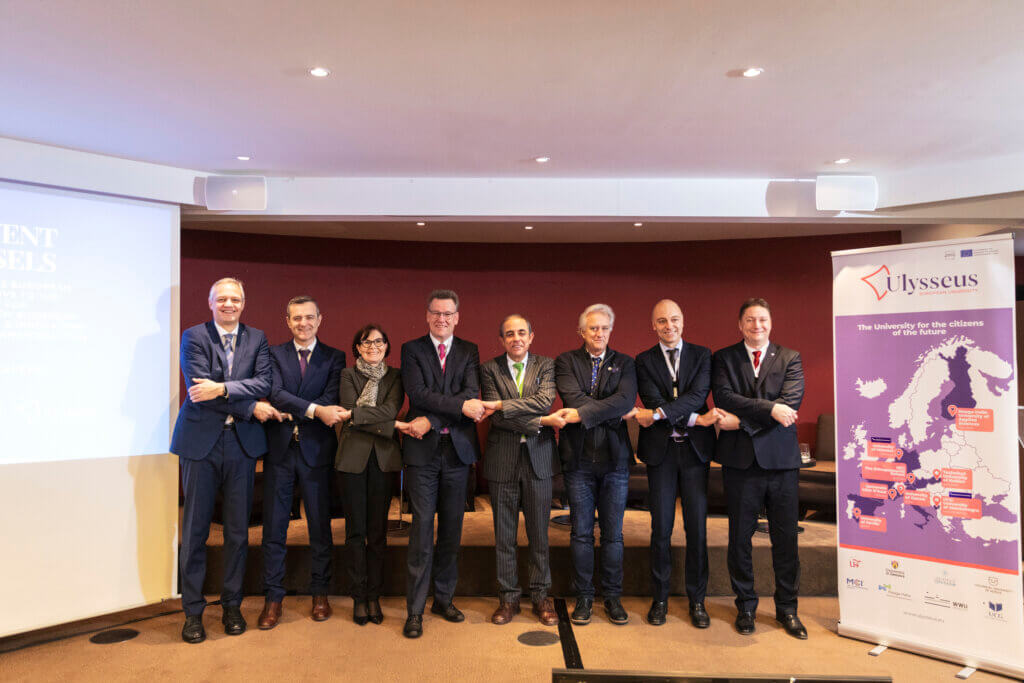
In terms of eligibility criteria, different items that have been considered for the selection process such as the geographical diversity due to their location in different European regions, the reinforcement of Ulysseus research capacity, inclusiveness and solidarity; and multilingualism and multiculturality —Ulysseus European University will speak 9 European languages. Additionally, the decision to enlarge the alliance with two new partners will add more value to Ulysseus.
Miguel Ángel Castro, rector of the University of Seville explained that “we are now preparing the next stage in which we will consolidate our structures and programmes and activities”. In this sense, “we did not doubt when discussing about the consortium enlargement that we wanted to expand the family”.
“We are very glad to welcome the University of Munster and the University of Montenegro. They are fulfilling our expectations and hopes”, he ended.
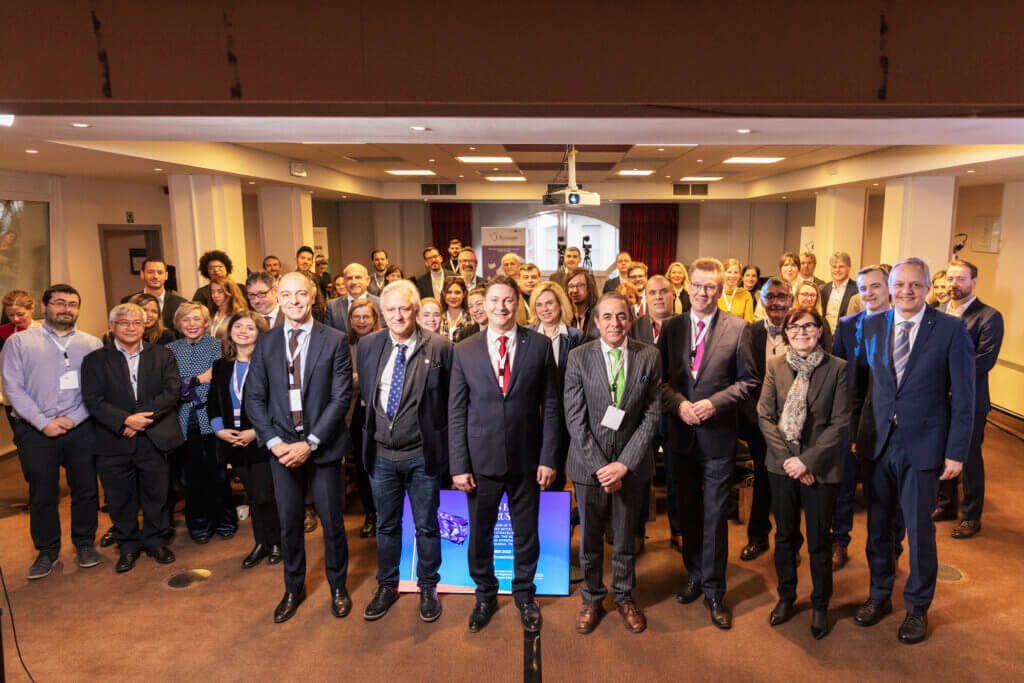
University of Münster
University of Münster is based in Münster, Germany, and it is one of German’s largest comprehensive universities with 44.500 students, 7320 full time employees and 15 faculties.
University of Münster is developing an interdisciplinary and cutting-edge research in teaching, (as students learn through research).
Regarding cutting-edge research, some areas of expertise are religion and politics, cell dynamics, mathematics, battery research and nanosciences.
The values of the University of Münster lie in inclusion, diversity, gender equality and research.
“We are looking forward to joining the Ulysseus EUN, not only for the sake of our own University’s internationalisation strategy. It will result in an increased mobility for the entire university community comprising students, researchers, and staff. Together, we will strengthen our local ecosystems as well as transfer in its multiple dimensions across Europe.”, explained the rector of the University of Münster, Johannes Wessels.
University of Montenegro
University of Montenegro is based in Podgorica, Montenegro. It is the oldest and the largest higher education, scientific and artistic institution in Montenegro.
It is a comprehensive public university active in research with more than 21.000 students, 19 faculties and 3 research institutes.
The values of the University of Montenegro lie in academic excellence, autonomy, creativity and the freedom to create.
Vladimir Božović, rector of the University of Montenegro, expected that this joining “enhance its international competitiveness and raise its profile as a research-intensive university, recognized in the European Higher Education Area and even wider”. As he described it, this collaboration “will offer to its students and staff improved opportunities for networking within Europe and more possibilities for participation in interdisciplinary research projects”.
Ulysseus Brussels Open Event
Ulysseus’ community (representatives, staff, researchers and students) met in Brussels in December 16 to present the main achievements and introduce the two new Ulysseus members. During Ulysseus Brussels Open Event (link a la PR), University of Münster and University of Montenegro were welcomed to the alliance to be incorporated in the new phase.
Furthermore, representatives of HEIs, European Commission and the Ulysseus Community participated in two open discussion roundtables:
During the first one, “European Strategy for Universities and European New Innovation Agenda: contribution of the European Universities Initiative” where ,participants discussed the expectations of the European institutions and universities on the European Universities contribution to the fulfilment of the European Strategy for Universities and the New European Innovation Agenda. Ulysseus Open Event in Brussels closed with the second roundtable about “The role of Universities in the Regional Innovation Ecosystems”.
About Ulysseus
Ulysseus is one of the 44 European Universities selected by the European Commission to become the universities of the future. Led by the University of Seville together with five other universities in Europe (the University of Genoa, Italy; Université Côte d’Azur, France; the Technical University of Košice, Slovakia; MCI | The Entrepreneurial School®, Austria; and Haaga-Helia University of Applied Sciences, Finland), the project will allow students, researchers and graduates to move freely between universities, carry out internships in companies and start high-impact research projects.

